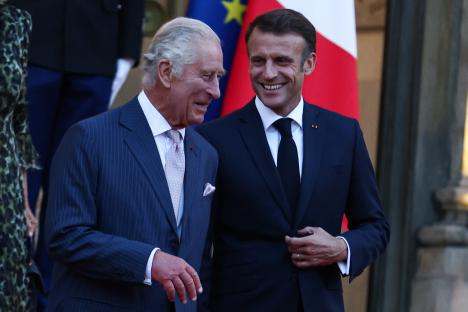The European Commission is working on legal proceedings against AstraZeneca after the drugmaker cut COVID-19 vaccine deliveries to the European Union, sources familiar with the matter said.
The move would mark a further step in an EU plan to sever ties with the Anglo-Swedish company after it repeatedly cut supplies to the bloc, contributing to major delays in Europe's vaccine rollout.
Read more: Trudeau, EU leader talk vaccines but no assurance Canada exempt from export controls
The news about the legal case was first reported on Thursday by Politico. An EU official involved in talks with drugmakers confirmed authorities in Brussels were preparing to sue the company.
“EU states have to decide if they (will) participate. It is about fulfillment of deliveries by the end of the second quarter,” the official said.
The matter was discussed on Wednesday at a meeting with EU diplomats, where most EU states supported the legal action, two diplomats told Reuters.
However its largest, Germany and France, asked for more time to think about the possible move, the diplomats said.
“What matters is that we ensure the delivery of a sufficient number of doses in line with the company's earlier commitments,” a Commission spokesman said. “Together with the member states, we are looking at all options to make this happen.”
There was no immediate response from AstraZeneca on Thursday to a request for comment.
Brussels in March sent a legal letter to the company in the first step of a potential court procedure.
When the deadline for a reply expired this month, a spokesman for the Commission said the matter was discussed in a meeting with AstraZeneca but the EU was still seeking further clarification from the company on “a number of outstanding points.”
The spokesman did not elaborate, but details of the letter published by Italian newspaper Corriere della Sera show the EU was seeking clarification on what it deemed a delayed application to the EU regulator for approval of the vaccine.
Brussels also questioned how AstraZeneca spent over 224 million euros ($270 million) granted by the EU in September to buy vaccine ingredients and for which the bloc said the company had not provided sufficient documents confirming the purchases.
READ MORE: EU won’t take extra 300M doses of AstraZeneca, Johnson & Johnson, source says
Under the contract, the company had committed to making its “best reasonable efforts” to deliver to the EU 180 million vaccine doses in the second quarter, for a total of 300 million in the period from December to June.
But the company said in a statement on March 12 it would aim to deliver only one third of that. The EU letter was sent a week after that statement.
Under the contract, the parties agreed that Belgian courts would be responsible for settling unresolved disputes.
The EU has already decided not to take up an option to buy 100 million extra doses of AstraZeneca under the contract, an EU official said, after safety concerns about very rare cases of blood clots linked to the vaccine as well as supply delays.




